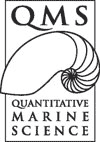
The coursework component of the QMS PhD program aims to expand the knowledge base of students and enhance their research experience.
All candidates must take the two compulsory units from the Graduate Certificate in Research (XGR501 and XGR502) as part of the Graduate Diploma in Marine and Antarctic Science in addition to the 6 QMS subjects. The QMS units comprise two compulsory core units and four elective units. Most units are taught intensively over 5 days and include lectures, laboratory classes and assignments.
New unit structure:
Core units:
Electives
To make up the 8 units choose another unit from the above electives
Coursework is completed in the first two years, constituting a maximum of one-third of the PhD program. Units are run either in summer school (February) or winter school (June-July). Your coursework enrolment will be the Graduate Diploma of Marine and Antarctic Science (S6O).
The purpose of this unit is to give new students an introduction to the QMS program and to bring all students up to a basic level of specialized computing skill. Students will be taught how to use a widely used programming language (MATLAB) and a well known statistics package (R) to provide basic skills in the use and application of these software packages, especially related to marine problems.
The purpose of this unit is to introduce students to physical oceanographic concepts, including the ocean's circulation and physical structure. Emphasis is on understanding why the oceans are variable and why some of their behaviour is predictable. The student will learn the fundamental concepts that are used in ocean models for modelling currents and their role in the climate system.
This unit introduces students to biogeochemical processes that sustain phytoplankton, the organisms at the base of the food web in the ocean, and the effect of these processes on oceanic and atmospheric chemistry including greenhouse gas concentrations. Students will be exposed to fundamental concepts and techniques in marine biogeochemistry.
This unit discusses how oceanographic events can influence fisheries, and introduces key concepts in fisheries population dynamics, the assessment and management of fisheries stocks.
The unit provides an introduction to the structure, functioning and dynamics of marine ecosystems through a modelling approach. This knowledge of and approach to studying marine ecosystems is fundamental to informed management of marine natural resources, marine conservation, and assessment of the health, functioning and sustainability of marine systems. The unit will emphasise why modelling of marine ecosystems is important, and the challenges and limitations involved. The unit will cover trophic structure, flows of materials and energy, techniques to simplify ecosystem models, how to obtain suitable data for models, spatial considerations in ecosystem dynamics, optimum complexity in ecosystem models, and the importance of modelling the way in which humans interact with biophysical systems. A range of model formalisms and means of analyzing them will be introduced, including network analysis of material flux models, trophodynamic models, individual and agent-based models, combined oceanographic, trophic and biogeochemical models, and qualitative models. Strengths and limitations of each will be discussed. Students will be introduced to a variety of modeling approaches and softwares for modelling, including EcoNetwrk, COMPETE, ECOSIM, ECOPATH, and qualitative and agent-based models.
Satellite remote sensing has revolutionised the way that marine scientists can study the ocean and the physical and biological processes that are present. Students will gain knowledge of relevant satellites, sensors and techniques that are useful in marine research.
This unit will introduce students to the concepts and techniques used to make formal comparison of alternative options for management of marine systems and resources. As there are generally several ways to model a given system and different approaches to specific management issues in selecting an 'optimal' management solution, it is important to use a systematic approach to compare alternative management strategies, including assessing strengths and weaknesses.
This unit introduces a range of statistical and data analysis techniques used in the marine sciences. The course covers concepts of generalised linear models (GLMs), generalised additive models (GAMs), Bayes rules, bayesian versus frequentist interpretation, Markov chain Monte Carlo fundamentals, hierarchical models, bootstrap, permutation and cross validation tests. An introduction to time series and spectral analysis is given covering filtering, convolution, correlation, lags, interpolation and filtering techniques, spatial analyis methods (principal component analysis, empirical orthogonal function, optimal interpolation). The lecture material is complemented by practical sessions using a number of different softare packages, such as R, WINBUGS, Matlab, with exercises using oceanographic, fisheries, and other marine data sets.
Candidates will be introduced to a range of topics including what it means to be an HDR candidate; policy and procedure at UTAS; research ethics; planning and managing a research project; how to lead a team and guide research; moral rights and protecting and commercialising research; information retrieval, library services and resources and occupational health and safety. The unit will be taught via block teaching (face-to-face) and assessment tasks will focus on meeting key objectives required for confirmation of progression of candidature.
This unit will focus on a range of topics including: managing and reviewing the literature, writing a research proposal, presentation skills (presentations for conferences, seminars, discussants and poster presentations, including differences in styles between disciplines), principles of academic writing (developing responsible writing skills, structuring extended writing, technique and writing style and incorporating the work of other scholars into your writing) and preparing research results for publication.